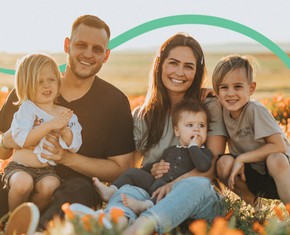The views expressed in our content reflect individual perspectives and do not represent the authoritative views of the Baha'i Faith.
If you have a desire for justice and you enjoy making friends, then you’re in luck, because these things go together well.
The Baha’i teachings say that enjoying the company of others can bring about a more unified and prosperous society:
They that are endued with sincerity and faithfulness should associate with all the peoples and kindreds of the earth with joy and radiance, inasmuch as consorting with people hath promoted and will continue to promote unity and concord, which in turn are conducive to the maintenance of order in the world and to the regeneration of nations. – Baha’u’llah, Tablets of Baha’u’llah, p. 36.
So much of the injustice, cruelty, and exploitation in the world is sustained in large part by prejudice. Unfair treatment of some portion of the population gets excused on the basis of negative stereotypes and harmful assumptions. Some people are willfully ignorant about their prejudices, because believing in them serves their selfish interests. But others simply don’t know any better for one simple reason: they’ve rarely socialized with anyone who wasn’t of the same race, religion, class, nationality, or other marker of identity.
We know that prejudice festers in segregated environments—but new experiences can give us food for thought and nourishment for the soul. Meaningful conversations pursued with a listening ear and an open mind can clear the air of many of the misconceptions that reinforce the oppression of marginalized groups. Interactions that begin with words can also lead us to take concrete practical steps to improve our communities.
Baha’u’llah, the prophet-founder of the Baha’i Faith, encouraged people to break out of their bubbles. In his home country of 19th-century Iran, the boundaries that separated people were very strong. Although almost all of the most prominent early Baha’is were from the Muslim and Persian majority, the Baha’i teachings also spread widely among religious and ethnic minorities. Through the influence of Baha’u’llah’s teachings, the Baha’i community became a laboratory for an integrated society. A generation later, his son Abdu’l-Baha explained:
At present in Asia those who have accepted [Baha’u’llah’s] teachings and followed His example, although formerly most hostile and bitter toward each other, now associate in brotherhood and fellowship. The strife and warfare of past times have ceased among them. Jews, Zoroastrians, Christians, Muslims and others have attained to a superlative state of love and agreement through Baha’u’llah. They now consort together as one family. – Abdu’l-Baha, The Promulgation of Universal Peace, pp. 372-373.
One example of this is my mother-in-law’s family, the product in Iran of a marriage between a Baha’i man of Jewish background and a Baha’i woman of Muslim background. The cultural differences between them did create some troubles along the way. But it also demonstrated that, contrary to the assumptions of the wider society, members of those groups could live together in happiness and security.
Who we are as individuals is influenced by two powerful sets of factors: nature and nurture. One is beyond our control. The other is made up of all the habits we pick up over the years. Who we associate with, how, and in what kinds of environments are very important influences on our identity. Habits can be very hard to break, but none of them are irreversible.
Breaking those habits, and finding new ways to interact with our fellow humans, ignites the process of becoming a different person.
We should never despair about overcoming the injustices associated with segregation, prejudice and racism. Some things may seem impossible for us. But bit by bit, conversation by conversation, deed by deed, we can become a new community, a new nation, and a new humanity. We can build a new “us.”
That’s the process we carry forward when we “associate with all the peoples and kindreds of the earth with joy and radiance.”
















Comments
Sign in or create an account
Continue with Googleor